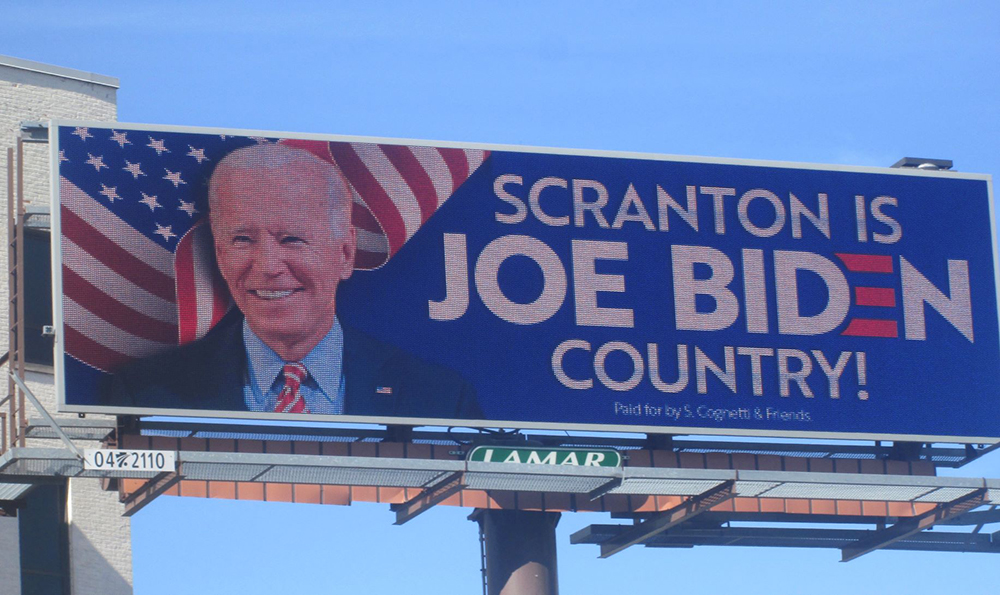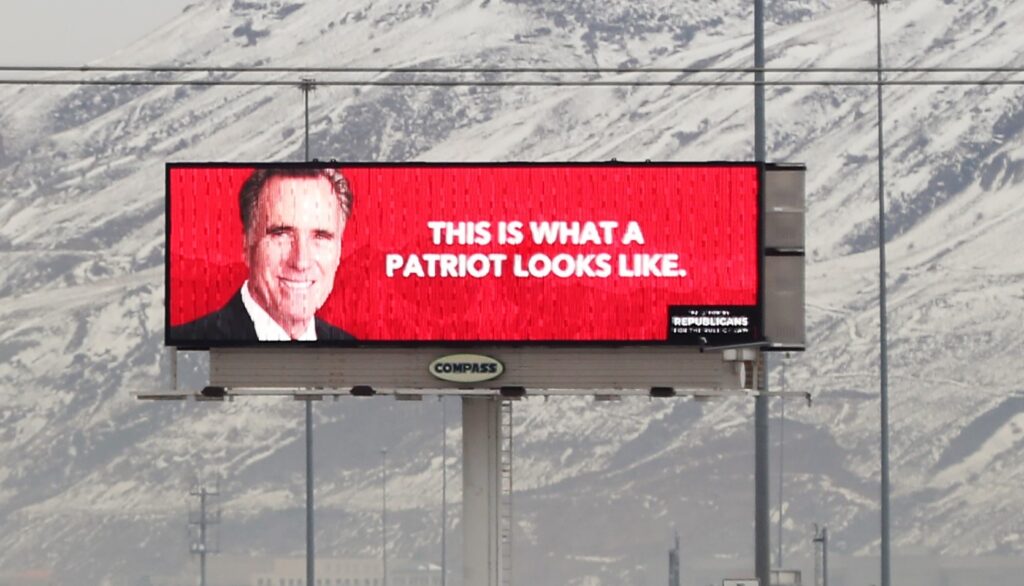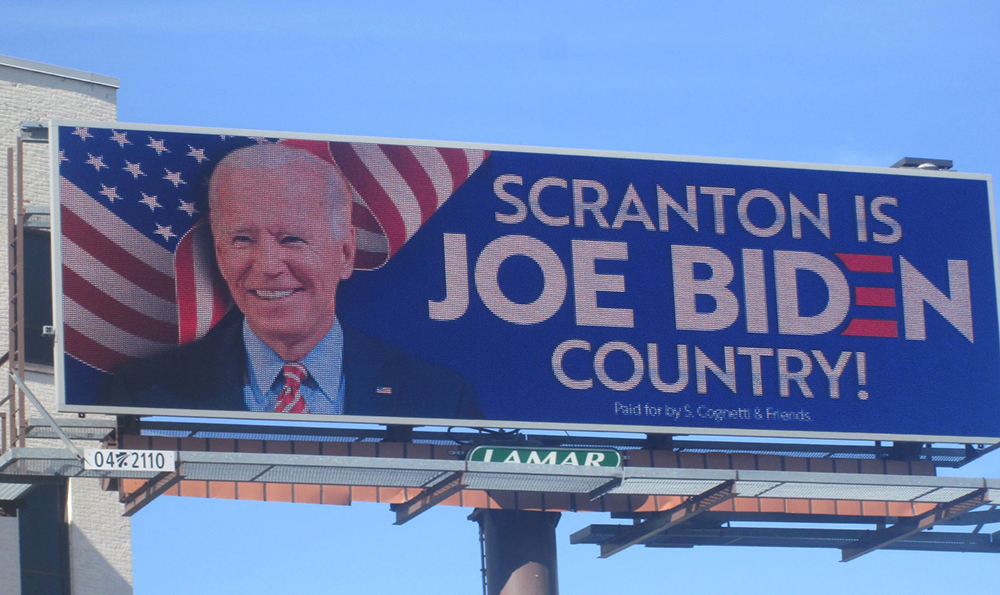
Soon after Senator Mitt Romney (R-UT) voted to convict President Trump of abuse of power – the only Republican senator to do so – a billboard appeared along Interstate 15 in Utah praising Romney as a “patriot.”
In response, critics of Romney opened a GoFundMe account in order to express their opposite views, that Romney should resign.
Once again, issues of the day are debated on billboards and other out of home media formats:
- A broad range of speakers express themselves on OOH media
- Diverse speakers advocate for and against cannabis, guns, God, gays, abortion, Confederate statues, and more
- Communication of ideas, news, and controversy are precisely the type of speech intended for protection by the First Amendment of the Bill of Rights
The Romney Example

After the impeachment vote in the US Senate (January 31), a group called Republicans for the Rule of Law posted a pro-Romney billboard in South Salt Lake with a picture of the senator and all-caps text: “THIS IS WHAT A PATRIOT LOOKS LIKE.”
Within days, a citizen named Lane Baker organized a GoFundMe solicitation to push Romney to resign, posting this online call to action:
“We have all seen the pro-Romney billboard on I-15 that claims Romney is a patriot. Romney is not a patriot, and he is not a good man to represent Utah. It’s time to inform the citizens about Romney’s need to step down from office. Please donate and we will add this billboard all over SLC. “
Help Fund Anti-Romney Billboard https://t.co/w6MLgLHSJO
— Dr. Lynn J Anderson (@andersonDrLJA) February 17, 2020
Small-dollar donors – who paid for political speech on billboards – pitched in $5 or $25 or $50. In this type of fundraising, a $100 donation was at the high end.
In 2018, voters in Utah and several other states considered legalization of cannabis. Proponents of medical marijuana legalization in Utah quoted Mormon Scripture on billboards urging “Vote Yes Prop 2,” which passed.
A Broader Point About Political Speech
More recently, supporters of Joe Biden posted a digital billboard in Scranton, PA, to troll President Trump’s visit to the town (March 5) where Biden grew up.

The consistent, high visibility use of OOH media for political communication and other non-commercial speech is an important fundamental in shaping sound regulation.
In Ohio, a judge struck down Cincinnati’s attempt to single out billboards for unique taxation but not tax other media. The court’s ruling in 2018 noted the “broad scope of messages communicated through the medium of billboards,” including political speech.
Interestingly, one of the billboard advertisements reviewed by the court in the Cincinnati-tax case was a Romney for President message on digital billboards in 2012.
Years later, Mitt Romney is still helping to remind us that out of home media is a platform for political pitches and spirited debate.
Published: March 5, 2020